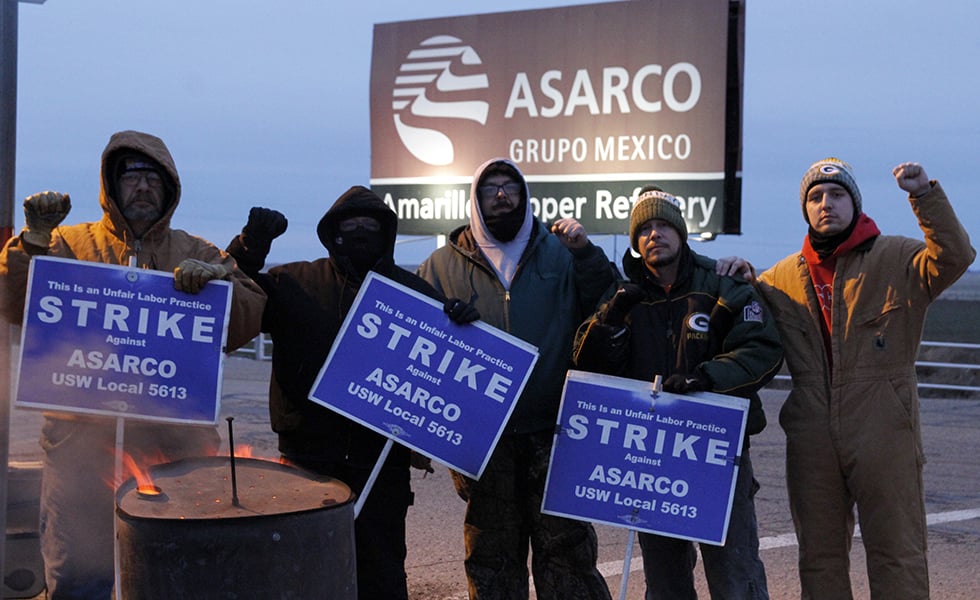
With Paid Leave Policies, Texas Cities Tried to Prepare for Coronavirus
Too many Texas workers can’t stay home when they’re sick. Two years ago, a movement tried to change that.

As the coronavirus spread across the nation late last week, U.S. Senator John Cornyn had some simple advice: “If you’re sick, stay home.”
Easy, right? Texas’ other Republican senator, Ted Cruz, has already heeded that counsel: He is now tweeting from the safety of self-quarantine after being exposed to the virus at a conservative political conference. But these are men who live off the largesse of the federal government, drawing a fine salary with benefits. Their political party, meanwhile, has done everything possible to stop many Texas workers from enjoying the same security—and with the coronavirus now infecting at least 27 people in the state, we could all pay the price.
According to the Institute for Women’s Policy Research, about 40 percent of workers in Texas lack paid sick leave. Many of these laborers—for fear of losing their housing or going hungry—fight through colds and even the flu at work. Service workers are particularly likely to lack paid leave and to spread contagious illness to the public. Two years ago, a movement of activists and workers in Texas tried to do something about that.
In February 2018, after a raucous five-hour city council meeting, Austin became the first Southern city to pass a mandatory paid sick leave policy. (In all, 12 states and a few dozen cities around the country have such rules.) Austin’s policy mandates that employees receive one hour of paid sick leave for every 30 hours worked, capped at six or eight days annually depending on the size of the business. The policy aims to extend paid leave to at least 87,000 Austin workers.
After Austin, the movement spread. In October 2018, the San Antonio City Council passed a similar measure, followed by Dallas in April 2019. Those policies seek to cover hundreds of thousands more workers. But a coalition of business lobbyists and temp agencies—aided by Republican Attorney General Ken Paxton—leaped to nip this pro-labor movement in the bud, filing lawsuits against all three policies.
Paid sick leave has been stuck in legal limbo ever since. In November 2018, a trio of judges on Texas’ Third Court of Appeals struck down Austin’s policy on the basis that it constitutes an illegal increase of the state minimum wage. Two of the three judges, all Republicans, lost their reelections just 10 days before issuing the judgment. That case is still languishing on appeal before the Texas Supreme Court, and San Antonio’s policy has also been blocked. Dallas’ policy is nominally in effect, but the city has postponed enforcement until April, and a lawsuit against the measure is pending before a federal judge. In 2019, Republican state lawmakers—with Governor Greg Abbott’s backing—tried to legislatively ban local paid sick policies, but failed in a fit of incompetence.
There are now confirmed cases of the coronavirus in San Antonio, Houston, and Collin County. SXSW and other major events have been canceled. Congressional Democrats have introduced a bill that would require paid sick leave nationwide—which would likely die on arrival in the Republican Senate. Meanwhile, the U.S. Surgeon General has resorted to Twitter: “Employers: PLEASE understand giving your employees flexibility and (paid) sick leave will save you money in the long run.”
Texas cities tried to prepare for this. Ideally, paid sick leave policies would come from the state or federal level; municipalities sometimes struggle to implement such ambitious measures. But, at the very least, the Republicans who run this state could get out of the way before the next pandemic.
Find all our coronavirus coverage here.
Read more from the Observer:
-
Following a Protest, ICE Transfers Dozens of Asylum Seekers to an Isolated Laredo Facility: Transferring detainees can negatively impact their already tenuous access to counsel.
-
The Gentrification of Texas: As the cost of housing skyrockets, Texans are getting pushed out and left behind. The stakes couldn’t be higher.
-
In Southeast Lubbock Neighborhood, Residents are Fed Up With a Feedlot: Kathy Stewart has complained for years about the fecal dust invading Yellowhouse Canyon. But so far, her concerns have mostly been ignored.


